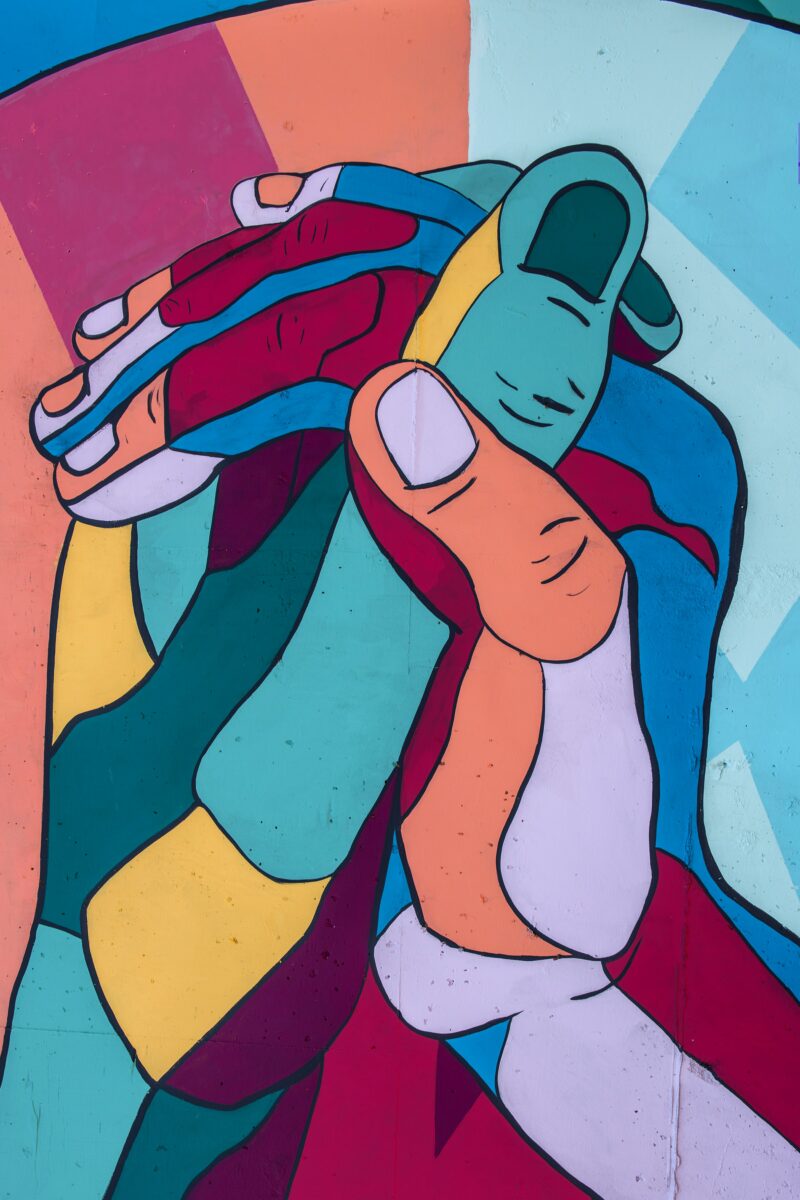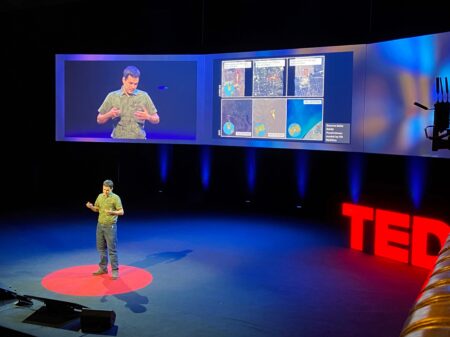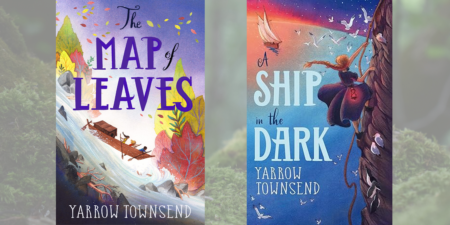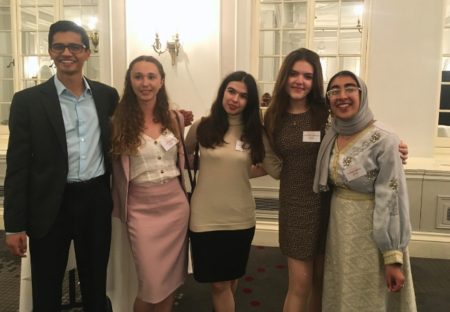Elsa quit her school in Paris at fifteen. But she is no classic dropout. She has just aced her baccalaureate, and is writing a guide for others who want to ‘hack the bac’. “It is already happening,” she whispered over dinner in a Brussels restaurant, “young people are taking control of their future.”
Jamal, a twelve-year-old Syrian refugee, has been out of formal education for four years, since his family in Homs fled Assad’s barrel bombs. But in a rainy camp in Lebanon’s Bekaa Valley his eyes were shining at the possibility a makeshift UNICEF school might soon open up. “I want to be an astronaut”, he told me, “I want to find safer planets.”
Charlie, a twelve-year-old British pupil in Abu Dhabi, is fortunate to learn from great teachers in a secure and positive environment. But as part of a family of migrants, he is in his fourth education system in eight years. There is little overlap on what is taught and assessed. “Why are school systems so different?” he asks. “And why are we memorising things we can look up online?”



Politics and society are being buffeted by three striking trends: a rapid rise of distrust in traditional institutions; a perception of growing economic inequality; and a more existential uncertainty about the future created by technology. The answer to each is of course education. So, are we ensuring that humans are learning the right things? Are they learning them in the right way? And if not, why not?
For me, these questions grew out of three experiences. First, being a parent of two boys, and agonising over what they needed to know to live a good life. What were the ideas and values that I had been most fortunate to inherit from my parents and ancestors? Every parent is a bridge, the story bearer between the past and future of their family.
Second, my experience working in the Middle East. I arrived as Ambassador to Beirut with the Arab Spring just starting, and I saw what happens when children are taught in sectarian or authoritarian education systems. And we have now all seen the same argument about whether we have more in common that dividing us being played out in the West. Friends of mine in the UK and Lebanon have died for it. All this after a century when we sacrificed so much working out the answer. Once again, as Kipling lamented, “the burnt fool’s bandaged finger goes wabbling back to the fire.”
Thirdly, from my experience working on the Syrian refugee crisis. Wherever you stand on who is responsible for the industrial slaughter, we can surely agree that the million kids still out of school should not pay the price. Time and time again, they and their parents told me that what they most wanted was education. Yet as they moved between countries seeking refuge, they were going through multiple education systems, each time losing valuable time and vital hope. Migrants in Europe are twice as likely to drop out of school, and a Syrian refugee can go through five different education systems in a year. More widely, six out of ten young people can’t read or add up, and a staggering 75 million are not receiving any formal education at all.
There is no reason why Jamal should not have as much potential as others with a more fortunate postcode. I struggled to understand: how was it that in a world of such daring innovation and genuine compassion it was so hard to deliver such a basic right?
I spent two years grappling with this question. And I discovered an even sadder truth: most young people on the planet learn the wrong things in the wrong ways. Too often we fail to spark the delight and magic of learning. We force feed kids what we ourselves learnt, without recognising how different their lives will be. Content and assessment persistently focus on classic academic knowledge rather than character and skills. And the league tables that compare education quality continue to focus on conventional exam results. On the current trajectory a generation on the move will therefore not be equipped with the skills they need. Polarisation, extremism, inequality, drift, intolerance and distrust will increase.
This would be an urgent challenge in normal circumstances. But technology will also bring new threats. States, ideas and industries will go out of business. We are told by the Davos elite that two thirds of young people will work in jobs that do not yet exist. With previous paradigm shifts we had decades or even centuries to adapt. We won’t have that luxury this time. Managing this is the greatest challenge of our era. Yet our political and social systems are in danger of being overwhelmed.
So I believe that we need a revolution in how and what humans learn. This does not mean simply expanding access to education, or adding fashionable topics to the content of the curriculum, or even evangelising or warning of how the next shiny gadget changes the structure of the classroom. Instead, it means revisiting why and how we learn. Is education to manufacture cookie-cutter followers with the same indoctrination? Is it to produce the next generation of factory workers? Or is it to produce generation after generation of global citizens who can thrive and coexist in a rapidly changing world.
The foundation for this education revolution should be new global learning goals of the head, hand and heart. Of knowledge, skills and character.
How have we learnt to live together? And what do we need to understand about the planet we inhabit?
On the essential wisdom we inherit, we would study how humans have developed, from cave paintings to driverless cars. How have we learnt to live together? And what do we need to understand about the planet we inhabit? As Oxford historian Peter Frankopan puts it “our natural instincts are to cooperate and to learn from each other. I am much more interested in how people exchange ideas and goods than in glorifying what happens when men fight each other for power and status.”
The skills needed to thrive in the 21st century would include an understanding of how we learn, and can keep on learning. How can we adapt to a world in which industries will disappear, and where we will need to work more closely together across cultures and societies? How can we manage our mental and physical health, and organise our lives? As we become phono sapiens, learners will also have to understand how to manage technology. As neuroscientist Tara Swart told me, “our children are constantly multitasking. And our memory and concentration centres in the brain have started to shrink. We don’t remember things because we don’t need to. The crux of the problem is that education hasn’t kept up.” But this does not simply mean teaching digital smarts. As the co-founder of Tech Will Save Us, Daniel Hirschmann explains, “my job as a parent is not to force our child down the world of coding… it is to demonstrate all the ways that he can express himself.”
And so, the new global learning goals should also focus on the heart: how can we ensure that future generations are kinder, more curious and braver than us.
The good news is that the digital economy will bring extraordinary opportunities to learn, innovate and create together. Global citizens will gain greater control of their own lives, including their education. Learning will be more collaborative, digital and human. The internet can liberate humanity’s ability to reason together. As the next billion come online, they will have better access to knowledge – free and accessible – not just than Einstein, but than Steve Jobs. This is a more significant moment than even the printing press in reducing the barriers to information. Computers and the internet replace the printed textbook. A smartboard replaces the blackboard. A blockchain ‘wallet’ replaces the exam certificate.
Visiting the California schools that the tech emperors send their kids to, I found the arguments over the need for more social and emotional learning are already won. Problem solving, team working, critical thinking and creativity are prioritised over remembering things or passing classic exams.
The bad news is this educational experience is available only to a small elite. The result is that it reproduces social and economic inequality. “This is the great civil rights issue of our time”, says UN Education Envoy Gordon Brown. We risk a new digital divide, where only a few can educate their children in the right ways.
Four constituencies – despite the best of intentions – are part of the problem.
Firstly, the tech industry itself. They invest more time re-wiring underprepared employees than working out how to spread the benefits of education of the heart and hand. Rather than fixing the symptoms of the education crisis, they simply pay more for the treatments. Worse, much technological disruption of education tends to be about the tech not the teachers. As education campaigner Graham Brown-Martin puts it, “the message is that ‘we’ve got self-driving cars, couldn’t we have a self-driving classroom’. But that’s not what learning is about, we know that from our own life. Learning is a deeply personal experience. The idea that we could dispense with the teacher and just give them a tablet? To my ears, it sounds horrific.”
Second, national governments. You only have to look at how little the average classroom has changed over 200 years, compared to, say, the average doctor’s surgery, to see how hard reform is. Even in countries traditionally seen as education leaders, political trends can often take education towards nationalism, rote learning and hierarchy rather than global citizenship, creative learning and networks. Even within the most developed economies, the gap between the best and worst education is alarming. In a more human, digital and connected world, it will be harder for governments to retain a monopoly over what young people learn. At the same time, the fragility of the world order will make it harder for the UN to fill that vacuum. The countries that change fastest will produce the global elite of the 2040s, filling the top international positions and dominating the global economy.
Third, too many of our universities. Too many continue to invest in a factory model. Selection is too rooted in academic performance rather than potential. Technology is increasing the workloads of academics rather than freeing them for research and teaching. Disruption is already happening. There are calls for university courses to be reduced from three to two years. Code boot camps are now a 250 million USD a year industry for engineers, and more of their graduates find work than those from equivalent courses at universities. By 2025, universities could lose 30% of their market share to these leaner alternatives.
The universities of the future will be more accessible, as a resource for all of society, not just a small group who study there for three years. A hub for sharing knowledge, not a refuge for hoarding it. They will offer more programmes for those who choose not to attend full time, allowing them to combine their learning with work and life. Their curricula will include courses that develop citizens of a global world, with the ability to connect ideas, environments, and places, to experience failure and to solve problems. They will harness personalized learning and protect individual choices to ensure that students are able to maintain their autonomy and individualism. They will lead the ethical debate about the human values that we want to imprint in technology, and how we live with machines.
Most importantly, as artificial intelligence replaces mechanical tasks, universities will cultivate creativity. As Harvard education professor Howard Gardner says, ‘Don’t ask how intelligent anyone is; but rather, how are they intelligent?’
The final constituency unwittingly holding back change is most of us. Every parent wants their child to thrive. But in the absence of ways to assess hand and heart, and because of the requirements for a place at the right university or business, we are blinkered by the need to pass the test. Just sit at the back of any parent meeting where a headteacher proposes spending more time on drama or art than exam preparation. Parents’ doubts are rooted in genuine concerns for our children’s prospects in a rapidly changing world. The experience of home schooling during the pandemic could I hope be the catalyst that shifts parents into a more active role as reformers of how and why we learn.
Against this resistance, it is the learners themselves who have the most to gain from global learning goals, and the most to lose from the status quo. Will the founders’ generation find a way to equip themselves with the right skills? Not just to pass a university degree or school exam, but to thrive?
The answer is almost certainly yes. I asked students on every continent to develop a global curriculum for the head, hand and heart. They chose to learn more global history, more life skills, and more communication. They wanted credible global assessment standards against which to measure progress, including on skills and character. As these become established, the incentives will shift. Businesses and higher education institutions are less likely to recruit based on knowledge-based exams alone. More educators will create content on their fields, with the highest quality rising to the top (literally in the case of tables of YouTube hits). And governments will have more interest in ensuring that knowledge, skills and character are validated in a robust and fair way.
Generation Z grew up playing Tetris. It was neat, top-down, with clear rules. Our children are playing Minecraft. Their desire to change puts us on the cusp of a great leap forward in not just what we learn, but how and why we learn. Only if more humans learn the right things in the right way can we meet the challenge of the 21st century: how to create more winners from globalisation and technological change, while better protecting those left behind.
So, the Oxford professor battling to create space on the curriculum for a global view of history can take heart from the art teacher battling to show that mastering creativity is not just an after-school painting club. The headteacher convincing teachers and parents that mindfulness helps academic success can take heart from the tech entrepreneur testing how play develops brain power. The business leader frustrated that her employees aren’t equipped with the right problem-solving skills can take heart from the YouTube campaigner making popular videos on why education isn’t working. The UN official exhausted by trying to make it easier for refugees to pass through multiple education systems can take heart from the students demanding they be taught global competencies rather than the list of wars their country won.
“Education is not the filling of a vessel,” Socrates reminds us, “but the kindling of a flame.” Humanity faces technological and environmental change at a pace we cannot comprehend or control. We will have to be brave enough to master technology rather than be mastered by it. To be kind enough to reduce inequality rather than widen it. To be curious enough to invent new ways of living and organising ourselves.
We will need the knowledge that humankind has built over millennia. And the skills and character to thrive, adapt, learn, create, and coexist as global citizens.
That’s what I hope my children learn. More importantly, I hope it is what the next Marie Curie, Albert Einstein, Al-Khwarizmi or Bill Gates learns.
And maybe Jamal gets his moonshot.



